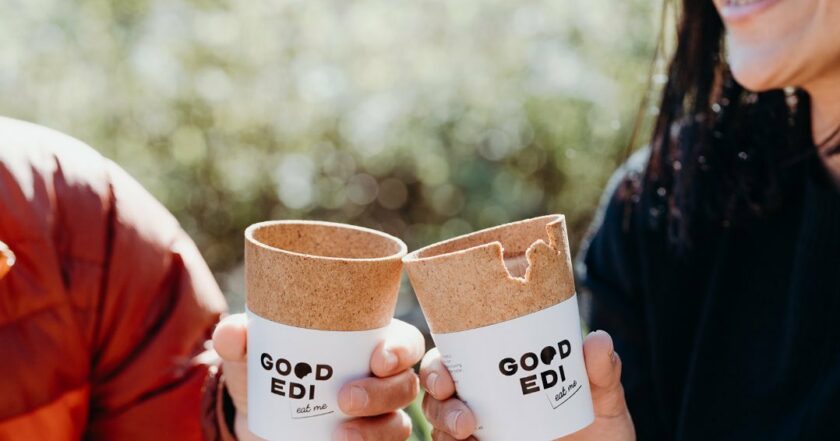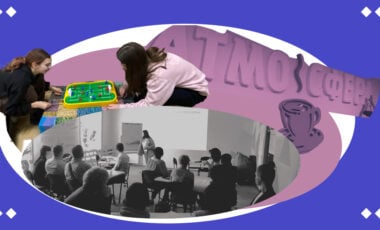Eco-solutions: Good-Edi offers edible coffee cups

Australian crowdfunding startup Good-Edi makes edible coffee cups. Its purpose is the fight against disposable products that have a polyethylene shell.
Bloomberg writes about it.
What is the problem?
The idea for the startup came to colleagues Aniyo Rahebi and Catherine Hutchins during a lunchtime walk in Melbourne when they saw a bin full of disposable cups.
For reference:
According to the United Nations Environment Programme, more than 250 billion plastic-coated paper beverage cups are produced worldwide yearly, and only about 1% of these cups are recycled.
According to Future Market Insights Inc consultant Ismail Sutaria, the use of plastic-coated paper cups for hot drinks will grow by more than 9% by 2025, with consumption reaching 166 billion units per year.
At the same time, international corporations strive to reduce waste. In particular, Starbucks wants to cut them in half by the end of the decade and is testing reusable cups in six regional markets. McDonald's is also testing containers made from natural plastic and biomaterials.
What is the solution?
After "hundreds of hours in the kitchen" and about 250 recipe changes, they invented biodegradable, edible containers.
Переглянути цей допис в Instagram
How does it work?
Such a container is suitable for both hot and cold drinks. It consists of rye flour, wheat bran, oat bran, sugar, salt, coconut oil, and water. The inventors claim that the container stays crisp for 40 minutes if you keep a hot drink in it, and a cold one can be stored there for about eight hours.
However, a Bloomberg Businessweek reporter notes that this container tastes like an unsweetened wheat cookie and can increase the cost of a takeaway cup of coffee by one Australian dollar (US$0.63).
In 2021, the company raised about $98,000 through a crowdfunding site and now makes about 500 cups a day for coffee shops, roasteries, and concert venues across Australia. This year, the startup wants to increase production and expand international sales.
Similar startups for the production of edible cups also exist in Latvia and Bulgaria, but the question remains about their practicality and consumer perception, Bloomberg adds.
It should be noted that the unique equipment for waste processing is manufactured in the Rivne region, using NIR innovations for the first time.
Rubryka also reported that in Volyn, the community established the production of containers for separate garbage collection.


















































